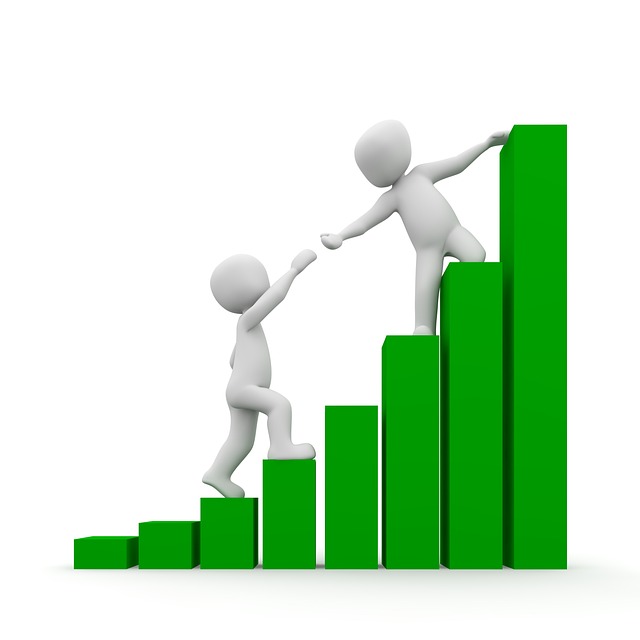
In the rich mosaic of societal progress, the act of giving—philanthropy—emerges as a vibrant thread, weaving through the fabric of communities and economies, shaping patterns of growth, empathy, and resilience. This narrative explores the profound impact of philanthropy on social metrics and delves into the nuanced ways in which these acts of generosity contribute to and redefine the measurement of economic value.
Philanthropy: A Catalyst for Societal Metrics
Philanthropy, at its core, is an expression of societal values, a tangible manifestation of the belief in collective well-being and mutual support. Its impact on social measurement indicators is profound and multifaceted, extending beyond the immediate beneficiaries to influence broader societal metrics such as health, education, and economic stability.
Health and Well-being
Philanthropic contributions to health initiatives—ranging from research funding for life-saving treatments to support for health education programs—play a pivotal role in enhancing public health outcomes. These contributions can be quantitatively measured through indicators like mortality rates, disease prevalence, and access to healthcare services, offering a clear view of the societal return on philanthropic investments.
Education and Empowerment
Investment in education, another cornerstone of philanthropic efforts, yields significant dividends in societal development. By supporting scholarships, educational infrastructure, and innovative teaching methodologies, philanthropy contributes to improved literacy rates, higher educational attainment, and, ultimately, a more skilled workforce. These outcomes, critical for economic growth, underscore the value of philanthropy in fostering human capital.
Economic Stability and Growth
Beyond health and education, philanthropic initiatives aimed at economic empowerment—such as microfinance projects, entrepreneurship training, and job creation programs—directly influence economic stability and growth. These programs not only provide immediate relief but also equip individuals with the tools to contribute productively to the economy, promoting a cycle of growth and generosity.
Redefining Economic Value Through Philanthropy
The traditional metrics of economic value, often centered on gross domestic product (GDP) and income levels, offer a limited view of societal wealth and well-being. Philanthropy challenges and expands these metrics, advocating for a more holistic approach to measuring economic value—one that includes social well-being, environmental sustainability, and community resilience.
Social Return on Investment (SROI)
At the forefront of this redefinition is the concept of Social Return on Investment. SROI goes beyond measuring direct financial returns to include significant social and environmental values that philanthropic activities generate. By quantifying the broader impact of initiatives—such as decreased healthcare costs through disease prevention programs, improved employment rates from educational grants, or enhanced community cohesion through social projects—SROI provides a more comprehensive view of the true dividends of philanthropic investments. This approach shifts the focus from short-term economic gains to long-term societal benefits, illustrating how philanthropy injects not just capital but sustainable growth into the economy.
Well-being and Happiness Indices
Another pivotal approach is the integration of well-being and happiness indices in economic measurements. These indices consider factors such as life satisfaction, mental and physical health, education quality, and environmental sustainability, which are often enhanced by philanthropic activities. By incorporating these indices, economists and policymakers can assess how philanthropy contributes to the overall happiness and health of a population—factors that are integral to a resilient and productive economy.
Community Resilience Scores
Philanthropy significantly impacts community resilience, enhancing a community’s capacity to respond to and recover from adverse situations, such as natural disasters or economic downturns. Investments in infrastructure, community centers, local education, and health services not only improve the quality of life but also build a foundation for economic stability and growth. Community resilience scores, which measure the strength and sustainability of these systems, offer a valuable metric for evaluating the economic impact of philanthropy on local scales.
FAQ
Q: How does philanthropy impact societal metrics?
A: Philanthropy deeply influences societal metrics such as health, education, and economic stability. For example, health-related donations play a significant role in improving social indicators through research funding and health education programs.
Q: How does philanthropy redefine the measurement of economic value?
A: Philanthropy challenges and expands traditional methods of economic value measurement, which often focus on GDP and income levels. Instead, it advocates for a more holistic approach that considers social well-being, environmental sustainability, and community resilience.
Q: What does Social Return on Investment (SROI) mean?
A: Social Return on Investment (SROI) is a concept that measures the financial return on philanthropic activities, including the significant social and environmental values they generate. This approach helps to comprehensively understand the true benefits of philanthropic investments.
Q: How are happiness indices and well-being metrics used in economic measurement?
A: Happiness indices and well-being metrics are utilized in economic measurement by considering factors such as life satisfaction, physical and mental health, education quality, and environmental sustainability. These indicators help assess how philanthropic activities contribute to overall happiness and health in a population.
Q: What do Community Resilience Scores evaluate?
A: Community Resilience Scores assess the resilience and sustainability of communities by evaluating the impact of philanthropic investments in infrastructure, community centers, education, and health services. It serves as a useful metric for measuring the economic impact of philanthropy on local communities.
Conclusion
In the grand narrative of societal development, philanthropy emerges not just as an act of generosity but as a key driver of social and economic progress. By impacting crucial societal metrics and challenging traditional notions of economic value, philanthropy illuminates the path toward a more inclusive, resilient, and prosperous society. As we continue to explore and refine the methods by which we measure this impact, the intrinsic value of giving—its power to transform lives and communities—remains an enduring testament to the human spirit and its capacity to effect meaningful change.